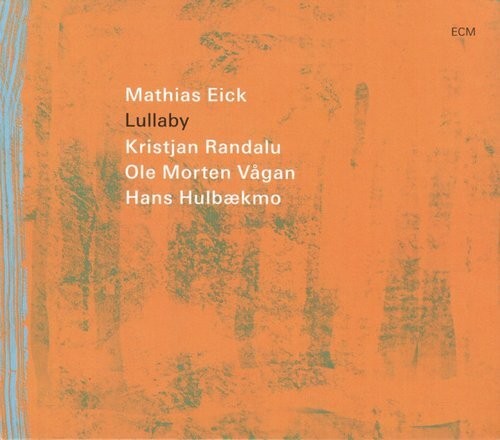
Artist: Mathias Eick
Album: Lullaby
Genre: Modern Creative, Contemporary Jazz
Label: ECM Records
Released: 2025
Quality: FLAC (tracks+.cue)
Tracklist:
- September (Eick) - 5:15
- Lullaby (Eick) - 6:58
- Partisan (Eick) - 4:53
- My Love (Eick) - 6:10
- May (Eick) - 4:43
- Hope (Eick) - 4:51
- Free (Eick) - 5:44
- Vejle (for Geir) (Eick) - 6:52
DOWNLOAD FROM FILECAT.NET >>>
- Personnel:
- Mathias Eick - trumpet, voice, keyboard
- Kristjan Randalu - piano
- Ole Morten Vagan - double bass
- Hans Hulbaekmo - drums
The prolific collaboration between Mathias Eick and ECM founder Manfred Eicher reveals a shared artistic vision that has reshaped contemporary jazz aesthetics. Eick's appearances on over a dozen ECM releases demonstrate Eicher's commitment to cultivating his distinctive sound—a muted, introspective trumpet approach that redefines jazz expression through restraint rather than virtuosic display.
Mathias Eick's sound seeps into the consciousness. It does not ring out with a magnificent blare, the notes do not zing or soar. His trumpet sounds, initially, like a new instrument that infiltrates itself into your sound palette. There is a personal quality as though the music is being played for you, to you: not given to outlandish statements. Eick is a leader of collaborators involved in teasing out delicate melodies that seem not to be just emanating from his trumpet but are a part of his essence. There is a melodic inevitably about his inventions: ideas are not entirely stemming from the blues but from the fjords. There is a purity about his playing and his composing. Lyrical restraint is a defining characteristic.
This aesthetic extends to Eick's compositions, where folk-inspired motifs ("May") evolve through cyclical repetition and dynamic layering. Pianist Kristjan Randalu acts as both foil and catalyst—his assertive phrasing contrasts with Eick's reticence, yet pushes tracks like "Hope" toward unexpected intensities.
A melody like "May" seems to have emerged from a folk music cocoon. The repetition and the rhythm have an increasing intensity as Randalu forces the pace. There is a difference between Randalu and Eick. Randalu is assertive, clipped, whereas Eick is inferential. "May" is a potent singing melody which yields a great theme for improvisation. It is also a melody that you can imagine being orchestrated for a large group that would hymn out the central theme.
Soothing is an adjective that is sometimes applied to Eick's work. That is probably disparaging. "Hope" is gentle but it is more than a background to meditation. There is an increasing intensity as Randalu forces the pace, sinks into the music and explores the lyricism.
Tracks like "Free" epitomize this balance—Eick's whispered vocals dissolve into Randalu's crystalline piano, while "Partisan" builds anthemic grandeur from minimalist bass ostinatos. The outlier "Vejle (for Geir)" disrupts the album's meditative flow with dissonant clusters and frenetic drum breaks, proving Eick's artistry thrives on destabilizing his own paradigms.
"Free" has Eick's voice, a voice that has a similar quality to the trumpet playing. As his soft singing gives way to piano bass and soft percussion. Randalu's piano breaks through encouraged by Hans Hubaeckmo on drums.
"Partisan" has anthemic qualities. The rhythmic notes from the bass are overlaid by the voice This is a melody that you can imagine being the theme of a group of collaborators being sung triumphantly
Completely distinct from the rest of the album "Vejle (for Geir)" has an almost discordant character. Gradually the intensity increases, it then becomes out of kilter with the rest of the album. Randalu has more space and he is driven by the drums. The extra animation affects Eick's own playing making him slightly more extrovert. In some ways, the track is disconcerting.
Eicher's repeated collaborations with Eick signal ECM's ongoing redefinition of jazz—not through radical innovation, but by distilling the genre to its essential lyrical core. When Eick states "I didn't see any future in repeating what's already been done," he encapsulates ECM's philosophy: jazz as a living tradition requires neither nostalgia nor rebellion, but the courage to let melodies breathe in their own crystalline space, proving that emotional authenticity emerges most powerfully when technical display yields to poetic economy.
Review by Jack Kenny

